- Learning time
- 30 minutes
- First play time
- 80 minutes
Chicago Express
Designed by: Harry Wu
Chicago Express is a train game unlike many others – although players are building routes (from the east coast of the USA, towards Chicago) the play is a combination of collaborative and combative.
The board shows the map of Eastern USA, broken into hexes. Five train companies (in five colours) begin with a train (representing track) along the east coast, and before play begins a share in each company is auctioned off to the players, who have 25 dollars each to play with. The highest bidder pays their winning bid into the company (i.e. not the bank) and that money can be used by the company to build its network across the interior.
Play progresses clockwise. On your turn you have three options – you can auction a share, build track, or develop. Auctioning follows the same process as above (which means the player who triggered the auction doesn’t necessarily get the share!) building track allows you to add up to three trains to the board (one per hex) from the starting position on the eastern board. To build you must own at least one share in the company you’re expanding, and the cost – which varies from hex to hex – comes out of the company coffers. Some hexes – particularly cities – will improve the stock value of that company. Developing is just adding a building to a hex the relevant company has track on – it doesn’t cost anything, but the development will also improve the company’s stock.
On the board are three steam gauges, representing the various actions: whenever an action is taken, the needle on the gauge moves up a notch. When a steam gauge goes into the red, that action cannot be taken again this round. And when a second steam gauge hits the red, the game temporarily halts as all gauges are reset and all companies pay out. The payout is the stock value divided by however many shares have been issued.
When (or if) any train company reaches Chicago (which has a big impact on stock value), it triggers a new train company that starts in the west instead. The game continues with these repeated actions and payouts until one of three end-game bonuses are triggered – three companies have no more shares to issue, there are only three buildings left, or a train company runs out of trains. At the end of the game, the player with the most cash is the winner.
Joe says
Despite looking like a route-building game, Chicago Express is really a share manipulation game; it shares heritage with a heavyweight series of games known as 18XX games that aren't covered on GNG (only because we've not played them to date (March 2018)). It's pretty cut-throat, and really plays best with five players who all understand it - a common criticism is that an inexperienced player can ruin the game for those players who know what they're doing. It's clever stuff, and has the lovely production values we associate with Queen games, including moving dials on the board.
The guru's verdict
-
Take That!
Take That!
Chicago Express is a game that certainly offers opportunities to be pretty dastardly. Don't like how well someone's doing with the green company? Buy a share in it and spend the precious company money building track in unhelpful directions. Feel like somebody is about to hit paydirt by reaching Chicago? Maybe you can trigger the end of the game before they get the chance!
-
Fidget Factor!
Fidget Factor!
There may be some odd mulling, but generally Chicago Express plays very fast due to the fact that the options are so limited, and they tend to run out rather quickly as well!
-
Brain Burn!
Brain Burn!
The chin-rubbing here isn't the rules, which are relatively light, but in the fine margins of bidding - how much - and timing - when to do what...
-
Again Again!
Again Again!
There are no real random factors such as dice or card draws. The variety really comes from the players and the different tactics you can employ - focus on a single company, or diversify into two, three, or even four or five? Each one has it's risks...

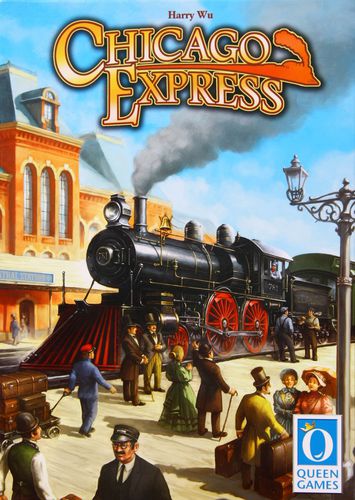
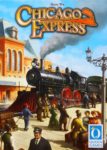
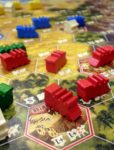

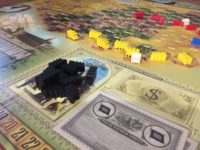
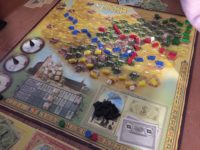


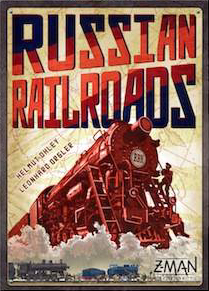
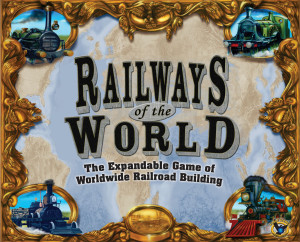
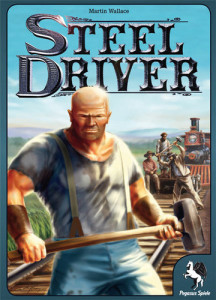
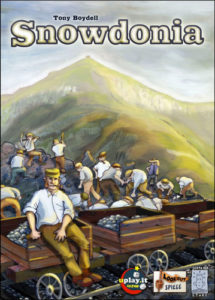
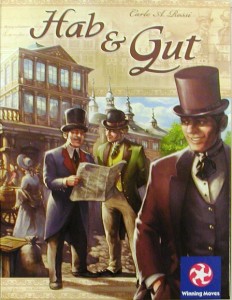
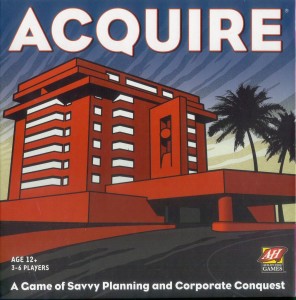
Sam says
If you like the fun of building a network and delivering stuff, then there are other games such as Railways of the World that scratch that itch more thoroughly. What Chicago Express has going for it though is the rapid rate it plays at and the high level of interactivity. Other players will be watching everything you do - either because you share ownership of the same company, or because they don't have the same shares and they want to stop you making your company too profitable!